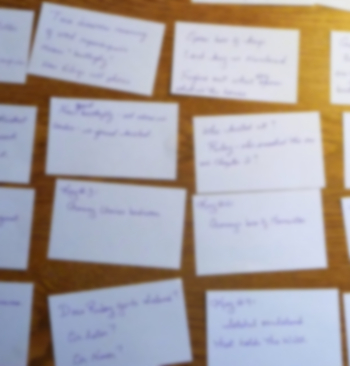Today I’m going to talk about portals. No, not first-person puzzle-platform video games developed by Valve Corporation (although Portal as well as its sequel Portal 2 are awesome and you should DEFINITELY play them). No, what I’m going to discuss today is “Author Portals”…and no they don’t transport authors to a different place – although that would be cool as well.
Some may already know about my new series that was signed to Random House’s Del Rey imprint. If not, you can learn about it here. There are many reasons to be excited about publishing with Random House, but one will probably surprise you…they have an Author Portal!
What is an Author Portal? It’s a website where Random House authors have access to comprehensive sales, royalties, and subsidiary rights information. For traditionally published authors, this is huge. Here’s some of the things you can get from the Random House Author Portal:
- access to weekly consumer purchase data
- access to copies shipped into the marketplace over the last ten years, broken out by sales channel and publishing format.
- resources for authors to grow their audiences online
- a tool used to embed buy links and “look-inside” functionality on Facebook pages
- ability to download royalty statements
- A list of all subsidiary rights deals
Having started in self-publishing, the loss of timely sales data is one of the things I find most frustrating. Right now, all I have access to is:
- Nielsen Bookscan information – I’ve bought a full version (which is rather expensive) but this information is provided for free to authors. All you need to do is use the Amazon Author Central. The problem with this data is it only reports on “print copies” and only a fraction of those. (They claim 75%-80% of all sales but comparison with my data shows it’s more like 65%).
- Monthly data from Orbit – My editors at Orbit UK and US have been nice enough to send me a monthly report. It shows warehouse data (copies shipped and units returned) as well as a total of ebook sales. I really appreciate them taking the time to pull this data for me. It helps a great deal.
- Royalty statements and unit ledgers – that come at six-month intervals – ouch! It’s impossible to judge what is going on with sales when data arrives so late and infrequently. For those who aren’t familiar with unit ledgers, they are a comprehensive reporting of books including those held in reserve, free units, and those that have been “hurt” – damaged due to returns.
Authors at Simon & Schuster authors have an author portal and I Hachette’s portal is in beta testing…please, please, please. Change comes slowly to publishing, but I’m so glad that these tools are being rolled out by the big-five. Here’s hoping that others will follow.
Michael J. Sullivan is a speculative fiction writer who has written twenty-five novels and released nine. Eight of his fantasy books (The Riyria Revelations, and The Riyria Chronicles), were published by Hachette Book Group’s Orbit imprint. Hollow World, a science-fiction thriller was released by Tachyon Publications. The first four books of his new series, The First Empire, has sold to Random House’s Del Rey imprint, and the first book is scheduled to be released in the summer of 2016. He can be found on twitter, through his blog www.riyria.com, and on his facebook page and his publisher’s page for the series.









